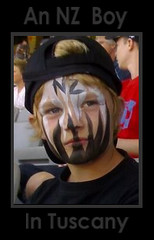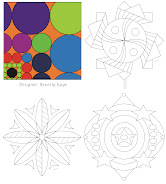I have been waiting for inspiration to step into 2009 with a positive and meaningful post for the ECEICT blog . As mentioned before - I have a number of draft copies of posts yet to be published. They all seemed an inadequate start to the new year. Today, however, I have been visiting TED again. If you haven't joined TED - I highly recommend them.
Barry Schwartz, a professor of Social Theory, talks about wisdom. That elusive quality that is hard to teach, that crosses cultural communities, age, education - and yet without it even the most intelligent among us can struggle.
Wisdom can not be taught. However I do believe that wisdom can be role modeled. As Schwartz promotes, we need organisations both on the macro level (say Kindergarten Associations, Boards of Trustees, Committees) and the micro level (individual teaching teams, individual teachers) that value wisdom above rules...
Check out what Barry Schwartz has to say. At first I thought I would recommend that you at least listen to the first 5mins... then I listened further and if you have 10min to spare enjoy a cuppa and listen. However, I actually highly recommend that you sit down, enjoy and be inspired by the 20mins of wisdom.
Please observe there is a footnote about ECE below this video.
What is Early Childhood doing about Children and the development of Wisdom?
Te Whāriki (NZ Early Childhood Curriculum) has five essential strands - Wellbeing, Belonging, Communication, Contribution, and Exploration. These we hope are some foundational developments to wisdom. Within our everyday programme we value children's thoughts. We try to connect with individuals at the beginning of the day to get them thinking - "What is your plan for the day?". When disagreements between children occur, we try to step back, or stand beside if asked and support them as they try to think through solutions. When altercations have erupted we sit together to work out how things got so bad that someone felt they had to resort to fists, and consider other pathways that could have solved the problem.
I believe that although wisdom can not be taught, we as early childhood teachers should be valuing this quality in children, parents and teachers - by documenting and celebrating wise choices, thoughts, and negotiations and promoting wisdom by not always sticking to the rules - seeing beyond the (our) rules.
What other ideas do you have to cultivate wisdom in young and older children? How can we help to build a generation of adults who are motivated by practical wisdom.
DEREK’S BLOG HAS MOVED
5 years ago














